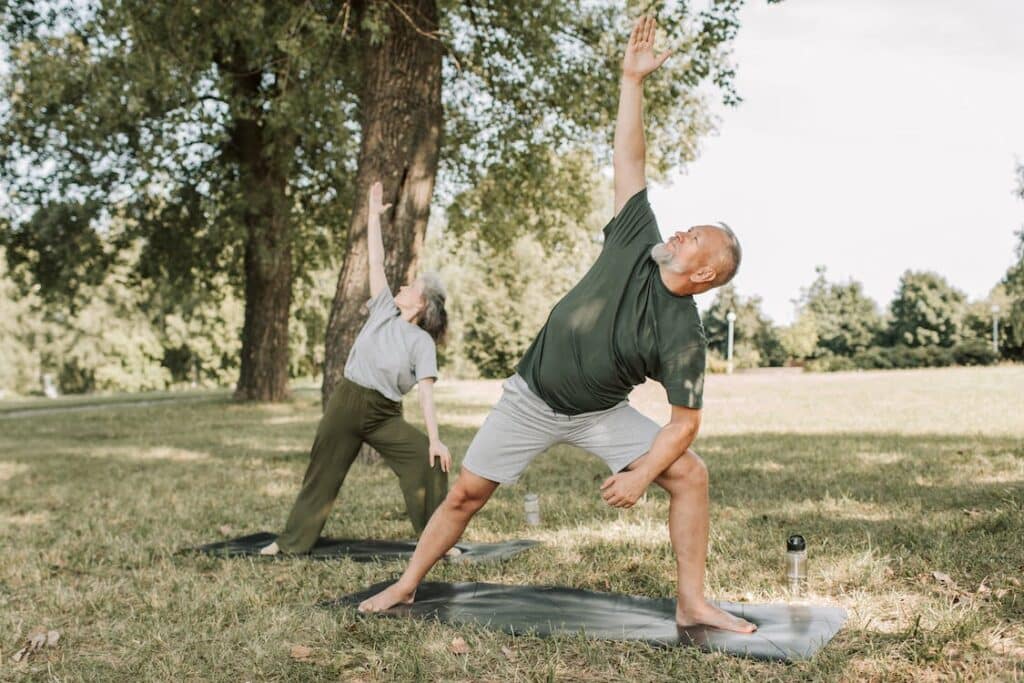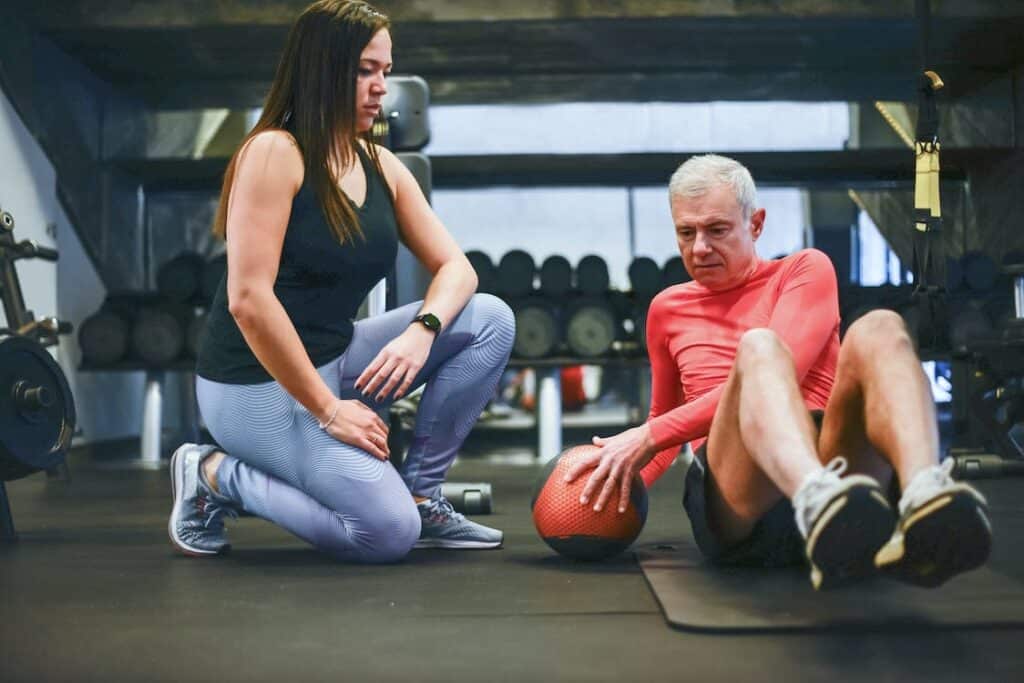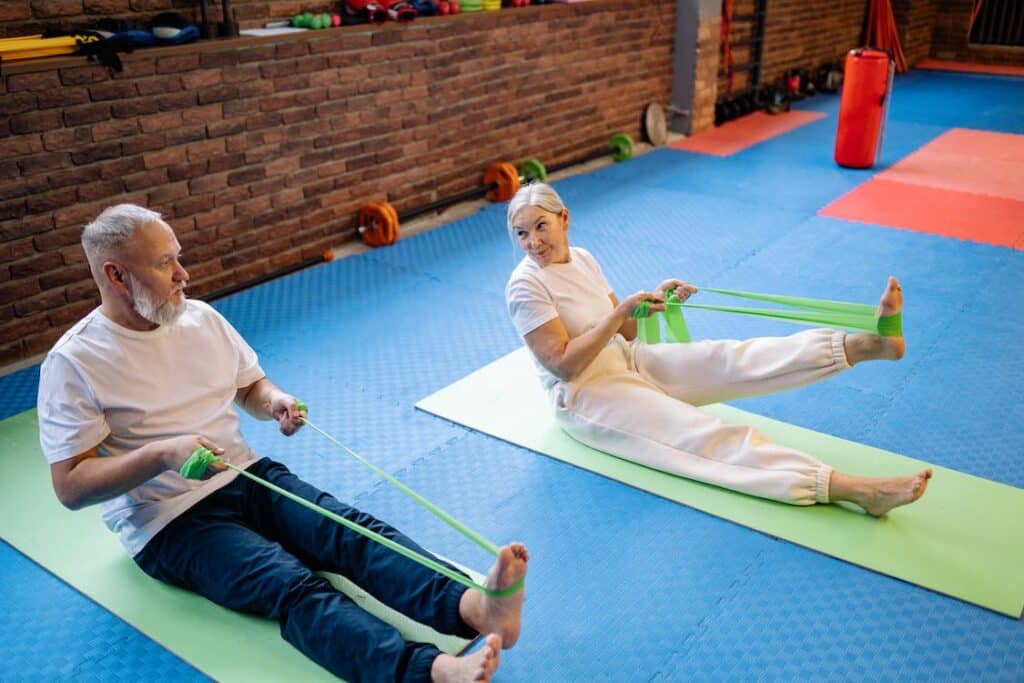Boosting Well-Being with Physical Fitness in Memory Care
Imagine a vibrant garden where each flower thrives through careful nurturing—this is akin to the role of Physical Fitness in Memory Care at Westmont of Cypress.
When tailored exercise programs are introduced, they not only enhance cognitive health but also foster emotional well-being. Engaging in activities like chair yoga or gentle dance can have a profound impact on residents’ lives. Whether focusing on the best exercise for Alzheimer’s or exploring seated exercises for dementia patients, physical fitness forms a vital foundation for holistic care.
However, the broader implications of these initiatives go beyond mere movement, inviting a deeper exploration of connection and support within memory care settings at Westmont of Cypress. Let’s dive deeper into why Physical Fitness in Memory Care is essential for enhancing lives.
Understanding Memory Care and Its Importance
When considering the unique needs of individuals with Alzheimer’s, dementia, or cognitive impairments, understanding memory care becomes essential. Memory care offers specialized environments designed to support residents through personalized care and safety measures. Facilities prioritize health and well-being, creating enriched living spaces that cater specifically to those facing cognitive impairment. This tailored approach not only fosters a sense of community but also enhances mental health by focusing on individual needs. Research shows that engaging environments can significantly improve the quality of life for residents, enabling them to maintain their dignity and independence. By understanding memory care, you can better advocate for the necessary resources and support systems that enrich the lives of those you serve, ensuring they receive compassionate, effective care. A structured environment helps reduce anxiety and confusion, which in turn supports the overall well-being of residents.
The Connection Between Physical Fitness and Cognitive Health
Although many may overlook the significance of physical fitness in the context of cognitive health, research consistently highlights its crucial role in improving brain function, especially for individuals living with memory impairments. Engaging in regular physical activity not only promotes cognitive engagement but also integrates beneficial brain exercises that stimulate mental processes. Incorporating mental exercises for dementia patients alongside physical movement enhances overall brain health. Additionally, physical therapy for seniors can help improve overall health and wellness, which in turn supports cognitive function.
| Benefits of Physical Fitness | Cognitive Engagement | Brain Exercises |
| Improves memory retention | Encourages problem-solving | Boosts creativity |
| Increases concentration | Enhances attention span | Fosters mental agility |
| Reduces anxiety and depression | Promotes social interaction | Strengthens neural connections |
In particular, vascular dementia exercise programs help improve blood circulation, which is critical for brain health, illustrating another layer of connection between fitness and cognitive resilience.
Customized Exercise Programs at Westmont of Cypress
At Westmont of Cypress, customized exercise programs are designed to meet the unique needs of each resident, guaranteeing that physical fitness becomes an essential part of their daily routine. These personalized fitness plans focus on enjoyable activities like chair yoga, gentle dancing, and even light strength training, promoting not only physical well-being but also social interaction. Some programs emphasize seated exercises for dementia patients, making participation accessible to all.
Trained staff guarantee a safe environment, fostering resident engagement and encouraging participation. Each program is adaptable, allowing modifications based on individual capabilities and preferences. Research shows that tailored exercise can significantly enhance cognitive health and overall quality of life. By prioritizing physical activity, Westmont of Cypress creates a community where residents thrive, reinforcing the importance of personalized care in memory support. Incorporating music therapy sessions into these exercise programs can further enhance emotional engagement and cognitive function.
Programs also incorporate mental exercises for dementia patients, such as memory games and storytelling, complementing physical activities for a well-rounded approach to care.

The Positive Impact of Physical Activity on Residents
Engaging in regular physical activity significantly enhances the well-being of residents in memory care, as it promotes not only physical health but also cognitive resilience. Studies show that regular exercise leads to memory enhancement, positively affecting daily functioning and overall quality of life. Emphasizing the benefits of exercise for dementia patients highlights improvements in mood, reduced aggression, and slower cognitive decline.
When you encourage residents to participate in group activities, they experience increased social engagement, forming connections that combat feelings of isolation. This camaraderie, coupled with physical movement, releases endorphins, improving mood and reducing anxiety. Tailored exercise programs can address individual abilities while promoting overall health, creating a supportive environment. Ultimately, incorporating physical fitness into residents’ routines not only enriches their lives but also nurtures a vibrant community that values connection and well-being. Personalized care plans ensure that each resident’s exercise program is uniquely suited to their individual needs and capabilities.
External resources like the Alzheimer’s Association Exercise Guidelines also support the idea that regular exercise improves quality of life for individuals with dementia.
Discover the level of care you or your family member requires. What Level of Care Do You Need?
Involving Families in Physical Fitness Initiatives
To enhance physical fitness initiatives in memory care, families play a crucial role in creating a supportive environment for their loved ones. Your involvement can significantly improve both family engagement and residents’ fitness outcomes. Here are some ways to get involved:
- Participate in fitness sessions. Join your loved one in exercises, making it a shared experience.
- Advocate for tailored programs. Work with staff to guarantee activities meet your loved one’s needs.
- Encourage regular activity. Remind and motivate your family member to stay active daily.
- Communicate openly. Share feedback with the memory care facility to refine fitness programs.
Family involvement can amplify the positive effects of exercise, building stronger emotional ties and encouraging residents to stay active. Experts at Verywell Health emphasize the significant role that families can play in motivating their loved ones to engage in physical and mental exercises.

Growing a Stronger Future Through Fitness
Incorporating tailored exercise programs at Westmont of Cypress in memory care is like planting seeds in a garden; with time and care, they blossom into vibrant connections and improved well-being. By prioritizing Physical Fitness in Memory Care, you’re not just enhancing cognitive health but also nurturing a supportive community where residents can thrive.
Engaging in the best exercise for Alzheimer’s, vascular dementia exercise, and mental exercises for dementia patients forms a powerful triad that benefits body, mind, and spirit. Integrating seated exercises for dementia patients ensures everyone can participate regardless of mobility challenges.
Families, residents, and staff together build an environment filled with vitality, compassion, and resilience. To learn more about our programs or schedule a tour, please call us at 714-252-7144 or visit our website.

Frequently Asked Questions
Why is physical activity important for dementia patients?
Physical activity is crucial for dementia patients because it helps maintain physical health, improve mood, and reduce symptoms like anxiety and depression. Regular exercise can slow cognitive decline and support overall brain function. It also promotes better sleep, increases energy levels, and helps maintain independence for longer. Even simple activities like walking or stretching can have a meaningful impact.
What is the best exercise for dementia patients?
The best exercises for dementia patients often include low-impact activities such as walking, gentle yoga, swimming, or tai chi. These exercises help improve balance, flexibility, and cardiovascular health without putting too much strain on the body. Structured group classes designed for seniors or those with dementia can also offer social benefits. Ultimately, the best exercise is one that the individual enjoys and can perform safely.
How does physical fitness affect your memory?
Physical fitness has been shown to improve memory by enhancing blood flow to the brain and promoting the growth of new brain cells. Regular exercise can strengthen neural connections and enhance areas of the brain associated with memory and learning. It also helps reduce inflammation and stress hormones, which can negatively impact memory. Over time, staying active can help protect against cognitive decline.
What is the physical support for dementia patients?
Physical support for dementia patients includes assistance with mobility, balance, and daily activities to ensure safety and comfort. Tools like walkers, grab bars, and specialized chairs can help maintain independence while reducing fall risk. Caregivers often assist with guided exercise routines and physical therapy when needed. Regular movement and supportive environments play a big role in preserving their quality of life.








